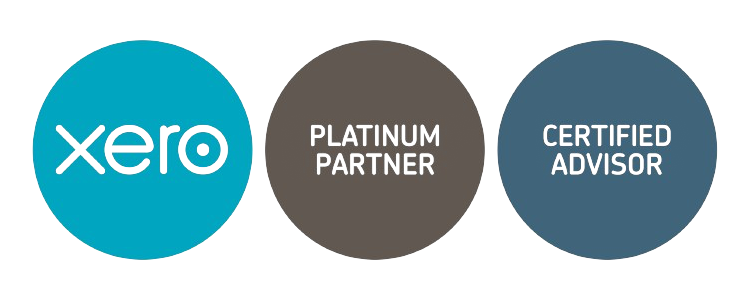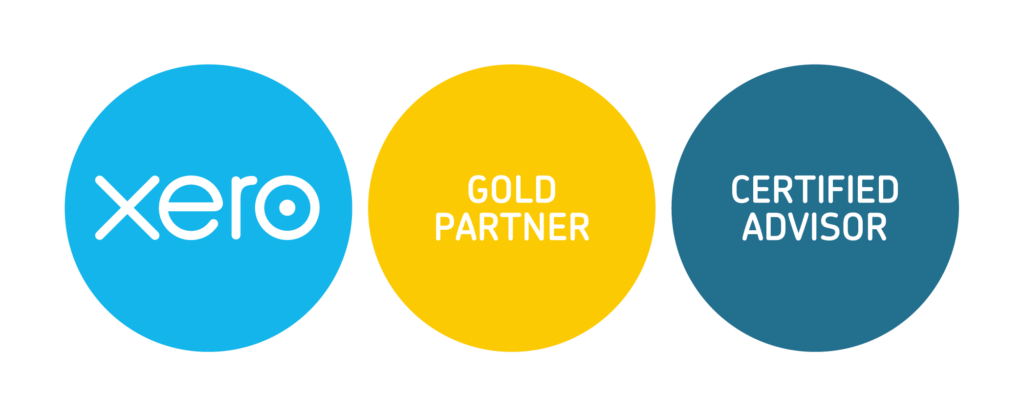CFO GROUP INTEGRATED SERVICES
Do Company Directors Get Paid? Comprehensive Guide to Directors' Remuneration
CFO Group • April 22, 2025
Yes, company directors do get paid. Director compensation includes fees, salaries, bonuses, and other benefits. Understanding how directors are paid is crucial for shareholders and for ensuring transparency and accountability in corporate governance.
👉 If you’re appointing a director for compliance purposes, especially as a foreigner in Singapore, learn more about our Nominee Director services.
In this article, we’ll explore types of compensation, legal regulations, tax implications, and best practices for setting and disclosing director pay, specifically addressing the question: do company directors get paid?
Introduction
Director compensation in Singapore primarily falls into two categories: directors’ fees and salaries. Directors’ fees are payments made for their services in their capacity as directors, typically associated with non-executive directors who contribute strategically rather than operationally. These fees are crucial in encouraging directors in Singapore to bring their expertise and governance skills to the table, alongside considerations of directors remuneration in Singapore.
In contrast, salaries are often paid to executive directors who have an employment contract outlining their day-to-day responsibilities. These salaries form part of the broader compensation packages that may include bonuses, stock options, and other benefits. Understanding these different forms of executive remuneration is essential for aligning director contributions with the company’s strategic goals.
Director's Fees vs Salaries
The distinction between director’s fee and salaries is not just semantic; it has significant implications for governance, tax, and legal compliance. Director’s fee is typically associated with non-executive directors and reflects their strategic contributions rather than direct operational roles. These fees require approval at a general meeting and are not subject to CPF contributions, and companies must pay director’s fees accordingly.
On the other hand, salaries are paid to executive directors as part of their employment contracts, requiring board of directors approval but not necessarily a general meeting resolution. This difference impacts the management strategies for compliance, CPF contributions, and tax liabilities, making it crucial for a company director to manage these executive duties effectively as a chief executive officer.
Legal Framework Governing Director Remuneration
Director remuneration is tightly regulated to ensure fairness and transparency. The Companies Act in Singapore provides a comprehensive legal framework that governs how directors are compensated. This framework aims to protect shareholder interests and ensure that the remuneration practices align with corporate governance standards.
Compliance with these regulations is mandatory and ignoring them can have significant repercussions. Companies must navigate this regulatory framework carefully, ensuring that all payments to directors are within the bounds of the law and approved by the appropriate bodies.
Companies Act Mandates
The Companies Act mandates that any fees paid to directors must be approved through a resolution at a general meeting. This ensures that shareholders have a say in how their investments are managed and that director remuneration aligns with the company’s strategic objectives. For example, to pay director’s fees, a resolution must be passed independently of other matters.
Additionally, the Act regulates the emoluments given to directors for their services, ensuring they are not excessive and are in line with industry standards. Adhering to these mandates is essential for maintaining trust and transparency in corporate governance.
Shareholder Approval for Director Pay
Shareholders play a critical role in approving director remuneration packages, ensuring that the process remains transparent and aligned with the company’s shareholders’ interests. Approval for directors’ fees generally occurs at either the general meeting, providing a platform for shareholders to voice their opinions and expectations.
This oversight helps to align directors’ compensation with the organization’s goals and shareholder interests, fostering a culture of accountability and transparency. For listed companies, significant compensation packages, especially for departing directors, usually require shareholder approval to ensure fairness and prevent potential conflicts of interest.
Tax Implications of Director Remuneration
Grasping the tax implications of director remuneration is key for compliance and financial planning. Directors receiving salaries under a contract of service are subject to CPF contributions, which are mandatory for employees. However, directors’ fees decided in General Meetings do not attract CPF contributions.
Different forms of remuneration, such as salaries, fees, and dividends, are subject to varying tax treatment. Companies must navigate these complexities to ensure that director remuneration is managed in a tax-efficient manner while complying with all regulatory requirements.
Taxation of Director Salaries and Fees
In Singapore, director salaries are considered taxable income from employment and are subject to progressive income tax rates based on the individual’s total income. Salaries for executive directors are categorized as employment income and are taxed on an accrual basis. This means that directors must pay income tax on their salaries in the year they are earned.
Director’s fees are generally taxable if the services rendered were rendered in the accounting year concerned. The distinction between fees and salaries is crucial as they are treated differently under Singaporean law, affecting the overall tax liability of the directors.
Impact of Dividends on Director Income
Dividends received by directors are treated differently from salaries and fees for tax purposes. In Singapore, dividends are typically not taxed at the individual level due to the one-tier corporate tax system. However, dividends from foreign sources may be subject to tax depending on specific circumstances outlined by tax regulations.
Strategic planning for the timing and structure of dividends can help optimize tax liabilities for directors. Directors should engage in strategic tax planning to maximize their after-tax income.
CPF Contributions for Director Salaries
CPF contributions are required for directors who receive salaries as employees under a contract of service. These contributions are mandatory and must be factored into the overall compensation strategy for directors. However, directors’ fees voted at meetings do not attract CPF contributions.
Understanding this distinction is of paramount importance, as it impacts the total cost of employing directors and the financial planning required to meet these obligations.
When CPF Applies
CPF contributions are applicable solely to salaries paid to directors. This is relevant only if they qualify as employees under a contract of service. Companies are not required to make CPF contributions on directors’ fees, making it essential to correctly classify the type of remuneration directors receive.
Disclosure Requirements in Annual Reports
Transparency in director remuneration is a cornerstone of good corporate governance. In Singapore, companies must include annual remuneration reports in their annual reports to inform shareholders about the remuneration and benefits for directors and key management personnel. This fosters trust and ensures that remuneration practices are aligned with shareholder expectations.
Detailed disclosure of directors’ remuneration helps shareholders understand how their investments are being managed and ensures accountability within the corporate structure.
Detailed Disclosure Practices
Disclosures must include detailed information about base salary, performance-related income, bonuses, benefits, stock options, and share-based incentives. Additionally, any remuneration paid to directors upon departure should be disclosed, detailing the nature and amount of the compensation.
Thorough disclosure of director remuneration fosters trust and aligns stakeholders’ interests with those of the company. Such transparency maintains accountability and ensures adherence to best practices in corporate governance.
Compensation for Departing Directors
Compensation for departing directors is governed by specific regulations and guidelines to ensure fairness and transparency. These guidelines help protect the interests of shareholders and ensure that departing directors are compensated appropriately for their contributions.
Companies must navigate these regulations carefully to ensure that all payments to departing company directors comply with legal requirements and are transparent to shareholders, seek professional advice when necessary, while also upholding their fiduciary duties in the company’s business.
Member Approval for Departure Payments
Member approval is necessary for compensating departing directors under certain conditions. For a director to receive compensation upon leaving office, the particulars of the proposed compensation, including the amount, must be disclosed, along with any compensation paid.
This keeps shareholders fully informed, allowing them to approve or disapprove of the compensation packages, thus maintaining transparency and accountability.
Best Practices for Setting Director Remuneration
Setting director remuneration requires a careful balance of aligning with company goals and shareholder interests. A robust remuneration policies should be clearly defined and transparent, ensuring that compensation reflects the company’s strategic objectives. A remuneration committee is vital for effective governance in director pay decisions.
Benchmarking against industry standards helps maintain competitive pay for directors, ensuring that the company attracts and retains top talent. Regular reviews of pay structures ensure compliance with governance standards and market benchmarks.
Aligning Pay with Performance
Director compensation should be linked to measurable performance metrics to reinforce accountability and align with long-term company objectives. Incorporating long-term incentive plans into director remuneration can motivate directors to focus on sustainable company growth.
Performance-based incentives should reflect both short-term achievements and long-term strategic goals, ensuring that director pay remains aligned with evolving company performance objectives.
Summary
In conclusion, understanding director remuneration is crucial for ensuring effective corporate governance. Transparency, compliance with legal frameworks, and strategic planning are essential components of a robust remuneration strategy. By aligning director pay with company goals and shareholder interests, companies can foster a culture of accountability and trust.
As we navigate the complexities of director remuneration, it is essential to stay informed and proactive in managing these critical aspects of corporate governance. By doing so, we can ensure that companies remain competitive and well-governed, benefiting all stakeholders involved.
🧾 Need Help Managing Director Remuneration in Singapore?
At CFO Accounts and Services, we help Singaporean business owners stay compliant with director remuneration rules — from payroll setup to tax planning. Need help calculating CPF for directors? Check out our payroll services.
Contact CFO Accounts & Services for expert advice on compliance, payroll setup, and proper disclosures. Book your free consultation today.
Frequently Asked Questions
What are the primary forms of compensation for directors in Singapore?
The primary forms of director compensation in Singapore consist of directors' fees and salaries, ensuring adequate remuneration for their roles. These compensation structures are critical for aligning directors' interests with those of the company and its shareholders.
Are CPF contributions required for all director remuneration?
CPF contributions are mandated solely for salaries of directors classified as employees under a contract of service. Therefore, if a director is not considered an employee, contributions may not be necessary.
Do shareholders need to approve director remuneration?
Yes, shareholders must approve director remuneration packages, often during the Annual General Meeting. This ensures that compensation aligns with shareholder interests.
How are director's fees and salaries taxed in Singapore?
Director's salaries in Singapore are taxed as employment income at progressive rates, while director's fees are taxable if the services were rendered during the accounting year. Thus, both forms of compensation are subject to taxation, albeit under different considerations.
What needs to be disclosed in annual reports regarding director remuneration?
Annual reports must disclose comprehensive details about director remuneration, including base salary, performance-related income, bonuses, benefits, stock options, and share-based incentives. Transparency in this information is essential for stakeholders to assess executive compensation effectively.












